There was blood everywhere: my shirt, his shirt, the floor. It was pouring so fast from my son’s mouth, all I could do was reach for the towel hanging on the oven door handle, prop it gently against his mouth and attempt to catch as much as I could.
It had been a day.
Well…more like a week. Using positive parenting strategies with my strong willed child is especially difficult for me some days, but this took the cake.
My son wanted to help cook dinner, and I happily obliged because our day involved a sequence of difficult power struggles and I knew he needed to connect more.
My daughter, who was also displeased about her day, was clinging to my leg and wailing dramatically each time I shuffled between the stove and the counter.
As my son shifted his bottom on the counter, he miscalculated the width of the counter, sending him face first into the concrete tile floor.
post contains affiliate links
Everything was slo-mo blur.
My brain immediately shifted into nurse mode. I pulled him off the ground and into my lap with one arm, reaching for the towel on the over door with the other.
The blood was coming out too fast for me to see if he knocked his teeth out, split his lip or something worse. I gently held the towel in place to catch the blood, while at the same time trying to calm my hysterical child.
Wait…that’s a lie. Comfort my two hysterical children. My daughter was vividly upset and scared at the situation. She attempted to crawl on my lap for comfort, which only sent my son deeper into an emotional tailspin.
He started yelling, “No touch-ing! NO TOUCH-ING,” at her and screamed louder each inch she moved forward.
She’s bawling. He’s bawling. Bloods-a-pouring. And I’m wishing my husband would magically appear any time now.
Positive parenting is hard work.
In that moment, I knew why parents yell. I desperately wanted to yell “Stop crying” and “You need to calm down” and “I told you to be more careful. And now look what happened”
Everything in my emotional brain wanted to revert to traditional parenting, allowing me to “control” and “manage” my kids’ behavior and emotions.
At least then I would’ve felt in control of the situation. Like I was doing something practical and purposeful to make the chaos, screaming and intense emotions stop.
For a flash second, I even wanted to put both kids in their rooms and go to a happier place–preferably one without blood.
This is why positive parenting gets uncomfortable.
You have to sit with uncomfortable emotion.
When your child is experiencing anger, sadness, or frustration, your first reaction may be to stop those emotions because it feels more comfortable to you. It is far more painful to meet your child at the emotion and sit with them through those feelings than it is to cover it up with a hypothetical blanket and pretend it’s not there.
Empathy is at the core of positive parenting, and when you empathize with your child, you hurt right alongside them. Their sadness, powerlessness and frustration is palpable in our hearts, which is why it’s natural for us to want the pain to go away.
When you are focused on making the other person’s pain go away, “you are most likely focused on your own pain and communicating to the other person that you can’t handle what he or she is going through.” – Dr. Theresa Kellam
You have to heal your own hurt from the past.
Unknowingly, we allow our own emotional pain from childhood to creep into our parenting. Any unresolved emotions from your childhood will interfere with your attempt to adopt positive parenting strategies.
Each time you try to positively respond to your kids, your brain is hardwired to default to your past experiences.
If you experienced a great deal of failure in sports as a child, for example, you may want your child to be the best at their sport. If they aren’t doing well, you may feel disappointed or discipline, yell or shame them after a bad game.
Or if you were never allowed to show your anger or frustration in your own childhood, for example, you may expect your child to go to their room if they cannot control their emotions.
We all have some unresolved pain from our childhood. The hard part is digging deep to discover what it is and how it is affecting our parenting.
You are no longer there to “make your child feel better.”
Trying to make your child feel better helps us feel like we are doing something, but in truth, we are teaching our kids to ignore their feelings so we can feel more comfortable.
And unfortunately, ignoring feelings doesn’t make them go away. It just buries them and allows them to surface in other ways like random temper tantrums in the grocery store or power struggles over homework.
What kids need most is to learn how to cope with frustration, anger, sadness and other emotions. In order to learn how to overcome challenges and move forward, kids need to experience tough emotions that go along with a bad day.
When we “fix” emotions or try to “make our kids feel better,” kids miss out on valuable and rich life lessons.
This is especially uncomfortable and hard as a parent. In positive parenting, you have to fight the urge to constantly kiss the emotional boo-boos, patch them up, and make them disappear.
You have to let go of emotional control.
You can control behavior and responses to emotions, but no one, not even adults, can control emotions. Think of it this way: Have you ever fallen in-love with the wrong type of person?
The person was not good for you at all. You can control your behavior by breaking up with the person, but after the break up you can’t stop yourself from loving the person.
Kids are the same way. We can coach our kids to make better behavior choices, but kids, nor their parents, will be able to control their emotions.
Learning to give up “control” and embracing intense and difficult emotions in both our kids and ourselves is one of the most uncomfortable, yet powerful aspects of positive parenting.
As the blood stopped, I pulled him in closer.
My son calmed down enough and the bleeding stopped, allowing me to remove the towel from his mouth. On the outside his lip was quadruple it’s normal size, appearing as if a giant red grape was surgically inserted into his lip.
I wanted to look inside his mouth to survey the damage; he refused. As I pulled myself up off the ground, he asked for a drink of water, and I was more than happy to get it for him.
Unfortunately, I chose the “wrong: cup and he fell back into a hot mess of emotions. We all know it wasn’t about the cup, but rather the emotions he needed to share with me about having a bad day.
For the next three hours he cried on and off about random and illogical things: his sister touched a toy, I walked in front of the tv, his sock was itchy.
As uncomfortable as it was, there was a valuable lesson: I learned to sit with the uncomfortable emotions he shared with me, and he learned to cope with something that was both difficult and overwhelming.
Next time–there is always a next time–he’ll have a few more tools in his emotional tool belt to cope, process, and move forward better than before.
P.S. When I was finally able to look at his lip, he completely severed his upper frenulum, which the doctors hope will heal on his own in the coming months. He is doing much better.
Where do you go from here?
I highly recommend the following posts if you are interested in a positive parenting approach that starts with empathy or emotion coaching:

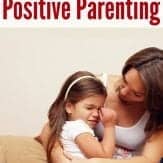
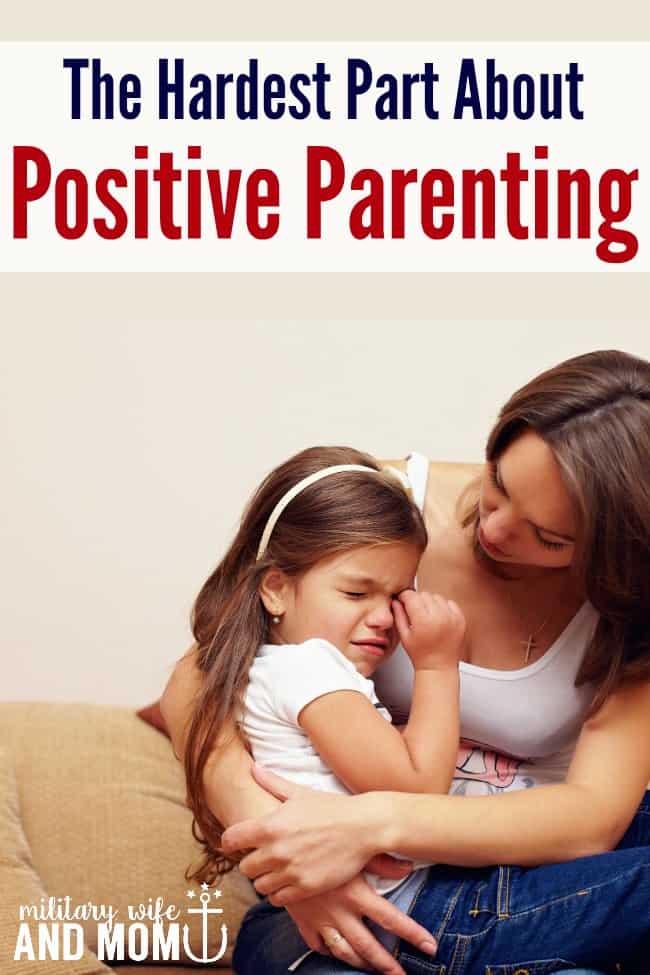
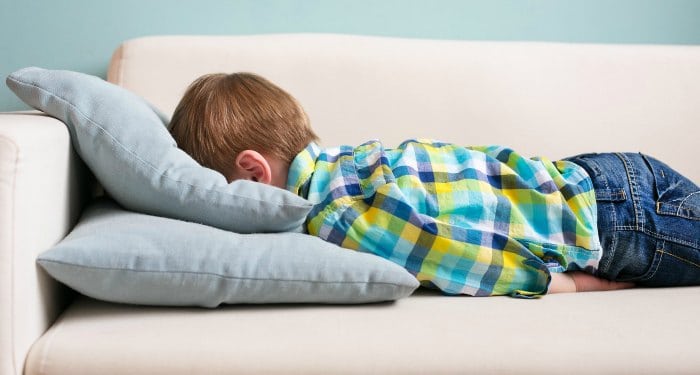
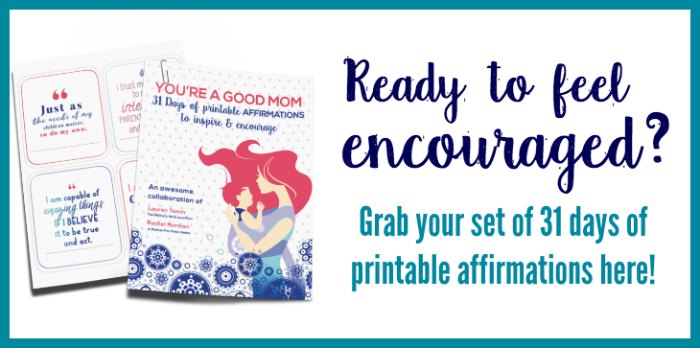
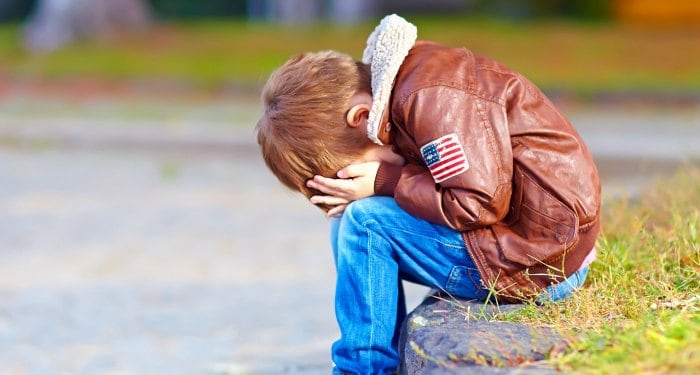
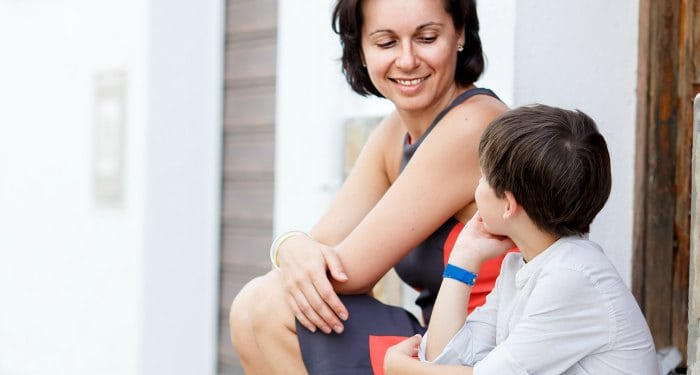
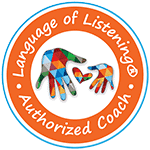
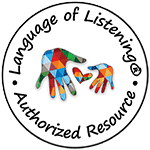
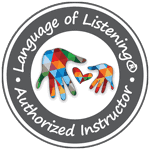









I feel like your story was at my house! I have three strong-willed boys, and hoo boy, trying to implement the positive parenting has been so HARD! But, on the flip side, I am seeing the benefits of it, and it has been incredibly wonderful! My children are opening up to me more, and there has been a greater sense of peace than before. One thing I’m trying to teach myself is to RESPOND and not REACT. It’s actually something my husband taught me when he was learning to deal with his anger struggles. (He’ll be writing about it on the blog soon.) Too often I react through the emotions I’m feeling at the time, when I need to step back and make a calculated thought before responding. Thank you for this post!
Amazing post. I so identify with what you wrote. Positive parenting is extremely hard, especially when they get illogical and dramatic. Great post!
Great article. Really love how you lay out so many positive parenting principles in such an easy to read and accessible way!! Glad your son was ok for the most part too!
Help me out here please: when there isn’t an incident such as the one you wrote about or your child hasn’t had a hard/bad day, where do the melt-downs over the wrong cup or juice (etc.) come from? What emotions is she trying to show me? The only way I know how to help my daughter “cope” with her emotions is just give her a hug and hold her as long as she wants and tell her I love her, I don’t even know how to cope with these powerful emotions very well so how am I going to teach her the “right ways” to handle these emotions??? As you said, my own childhood issues coming through in my parenting but you can’t teach something you don’t know…I really want her to be a calm, happy, good person instead of me (anxiety, depression, angry, mistrust for the world)!